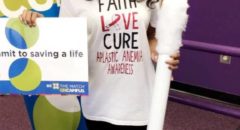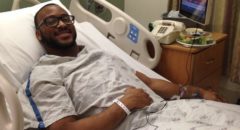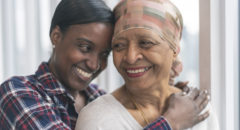
Most parents want their children to live carefree lives, so a diagnosis of childhood cancer is devastating. Fortunately, pediatric cancers are rare.
Yet it doesn’t hurt to be watchful for the warning signs, suggest experts in childhood cancer from Penn State Health.
The best screening most parents can do is to stay on track with well-child visits, doctors say.
“For example, at your child’s regular check-up, your pediatrician looks at your child’s eye with an ophthalmoscope – that’s an early eye cancer screening,” Dr. Lisa McGregor says. She is interim division chief of pediatric hematology and oncology at Penn State Health Children’s Hospital. “Your child’s pediatrician is your first line of defense.”
Caution: Home Pesticides & Your Child’s Risk For Cancer
Warning signs
The warning signs of potential pediatric cancer include:
- A lump in your child’s belly could suggest an abdominal mass.
- Swollen lymph nodes that remain enlarged for more than a couple of weeks, especially if they didn’t occur during a respiratory illness, could suggest leukemia or lymphoma.
- Pale skin and unexplained bruises can be a red flag for leukemia.
- An intense new headache in the morning followed by vomiting can signal a brain tumor.
However, Dr. McGregor stresses that even with these signs, your child may not have cancer. “Pediatric cancer is very rare,” McGregor says in a Penn State news release. “Even if you notice something new, most likely it will be caused by something other than cancer.”
Should you get your child screened?
Doctors do not recommend screening tests for most children. Studies have suggested that catching the cancer earlier doesn’t affect the








